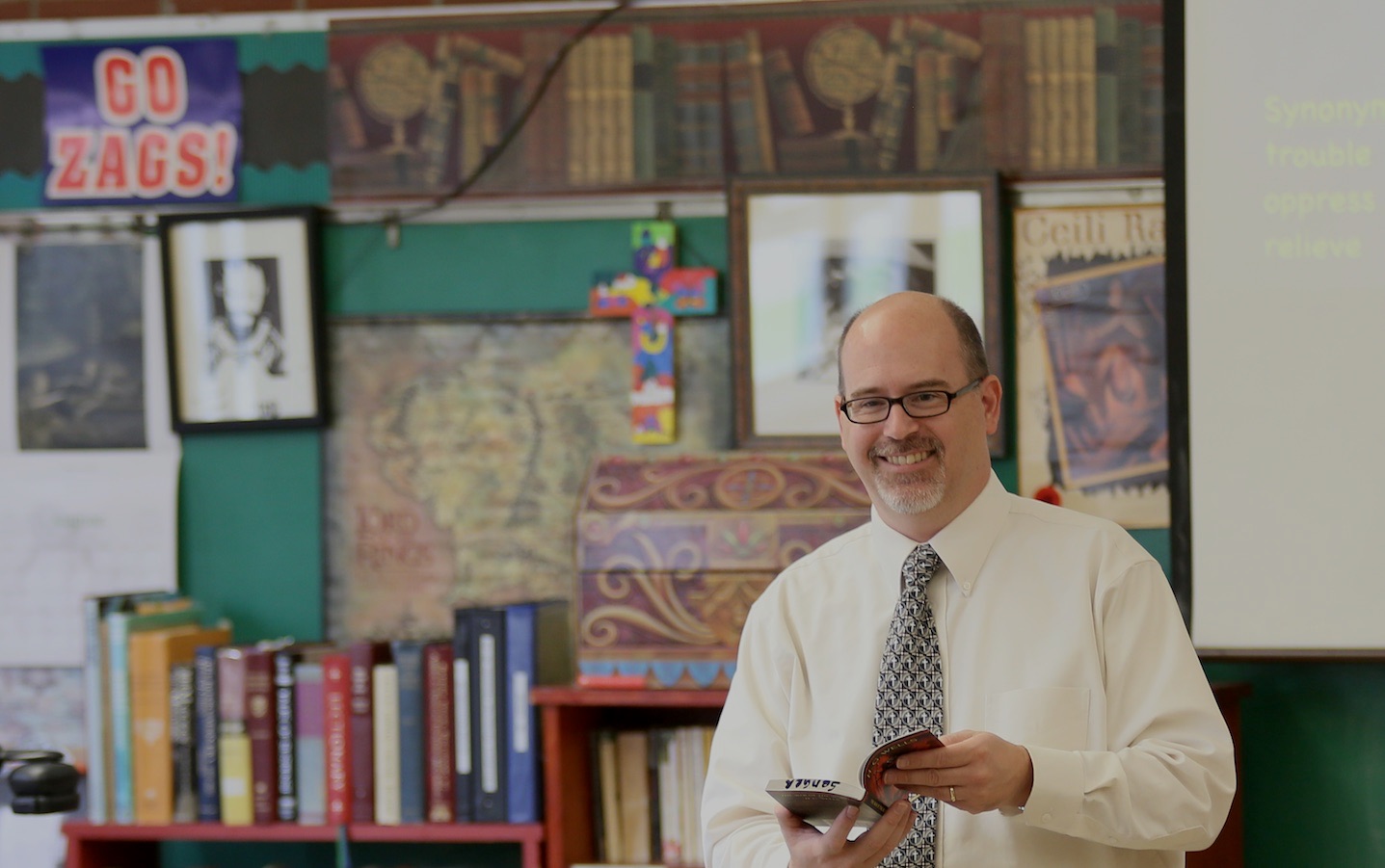 Teaching is a noble and essential profession, not only for society but also for the Church. In this third and final reflection on Brother Luke Grande’s book Twelve Virtues of a Good Teacher, we meditate on virtues that emphasize the profound effect teachers have on their students.
Teaching is a noble and essential profession, not only for society but also for the Church. In this third and final reflection on Brother Luke Grande’s book Twelve Virtues of a Good Teacher, we meditate on virtues that emphasize the profound effect teachers have on their students.
Humility
“Humility is truth, the truth about oneself, and a proper estimation of oneself in light of this truth….A proper self-evaluation should lead to a teacher’s feeling both humble and confident; and these virtues should in turn overflow into action that is effective in good teaching….A common quirk of teachers is to harangue students for failings that they themselves are guilty of: the talky teacher lowers the boom on the talky pupil; the teacher who himself fails to prepare classes takes no excuse for homework not done; the teacher who slips into the room the second after the bell has rung has no sympathy or willing ears for latecomers.”
- What are my strengths as a teacher and a person? What are my shortcomings?
- How does God see me?
- Am I overly critical of failings in students that I possess myself?
Patience
“A teacher with patience is well on the way to leading students in good, since he does not expect perfection from imperfect strivers. They are allowed some leeway, with time to get where they are going. In their slow progress as human beings, students are prone to take one step backward for every two steps forward; but eventually with a teacher’s coaxing and confidence, they seem, amazingly enough, to get to the goal he wants them to reach. This patience with their own stumbling efforts is based on the teacher’s sense of his own imperfections and weaknesses; as a consequence, he can be sympathetic with their struggles.”
- What is the difference between having high expectations of students and demanding perfection from them?
- Are there areas in which I could give my students more leeway?
- What are some things from my own past that took a long time to learn? What helped me to eventually learn them?
Seriousness
“The teacher contracts for a momentous responsibility: the formation of human beings through education….They are souls redeemed by the blood of Christ; souls who are the hope of the Church, of society, of their families; souls over whom the teacher can exercise a decisive influence. There can be no room for bunglers; souls are at stake. No wonder, then, that the good teacher should be characterized by seriousness, since his is a serious job….He is continuing in the work of Christ Himself, who spent the years of His public life teaching.”
- How does my teaching make a difference?
- What are some ways that I have exerted an important influence in someone else’s life?
- Have I taken any aspect of my teaching too lightly?
Silence
“Silence consists not so much in keeping mum at all times as in saying the right things at the right time–and, conversely, proper speech consists in keeping silent when one should….For a teacher, who must use words to communicate ideas, the virtue of silence will be exercised in circumspect speech, a speaking in the ‘right way’ so that an atmosphere for study can develop interested application on the part of the students.”
- Who does most of the talking in my classroom, the teacher or the students?
- Can I use silence more effectively in my teaching?
Conclusion
We’ve finally come the end of our meditations on the virtues proposed by Brother Luke. If you missed the first two articles, you’ll find part one here and part two here.
Here are the virtues again, in one list:
- Wisdom
- Prudence
- Piety
- Zeal
- Generosity
- Justice
- Kindness
- Firmness
- Humility
- Patience
- Seriousness
- Silence
Are there any virtues you would add? If so, please leave a comment with your thoughts and ideas. Personally, I would add the virtue of humor. I’ve found laughter to be invaluable to me in the classroom for lowering stress levels and building rapport, provided it’s not at anyone’s expense.
If you found these meditations on Twelve Virtues of a Good Teacher fruitful, I highly recommend reading the entire book. You’ll have to scour used book websites, but it’s worth it. I wish I would have had the book when I was just starting out in teaching over twenty years ago. I value my copy not only because of the content, but also because it was a gift from a family whose four daughters I taught from 1997 to 2008. It would also make a great book for Catholic school faculties to use as a book study.

 The beginning of a new school year can be chaotic, stressful and incredibly busy. Trying to fit prayer and meditation into the day can be difficult, but it’s exactly in these busy times that they’re most needed. Brother Luke Grande’s book
The beginning of a new school year can be chaotic, stressful and incredibly busy. Trying to fit prayer and meditation into the day can be difficult, but it’s exactly in these busy times that they’re most needed. Brother Luke Grande’s book 


 Heavenly Father,
Heavenly Father,